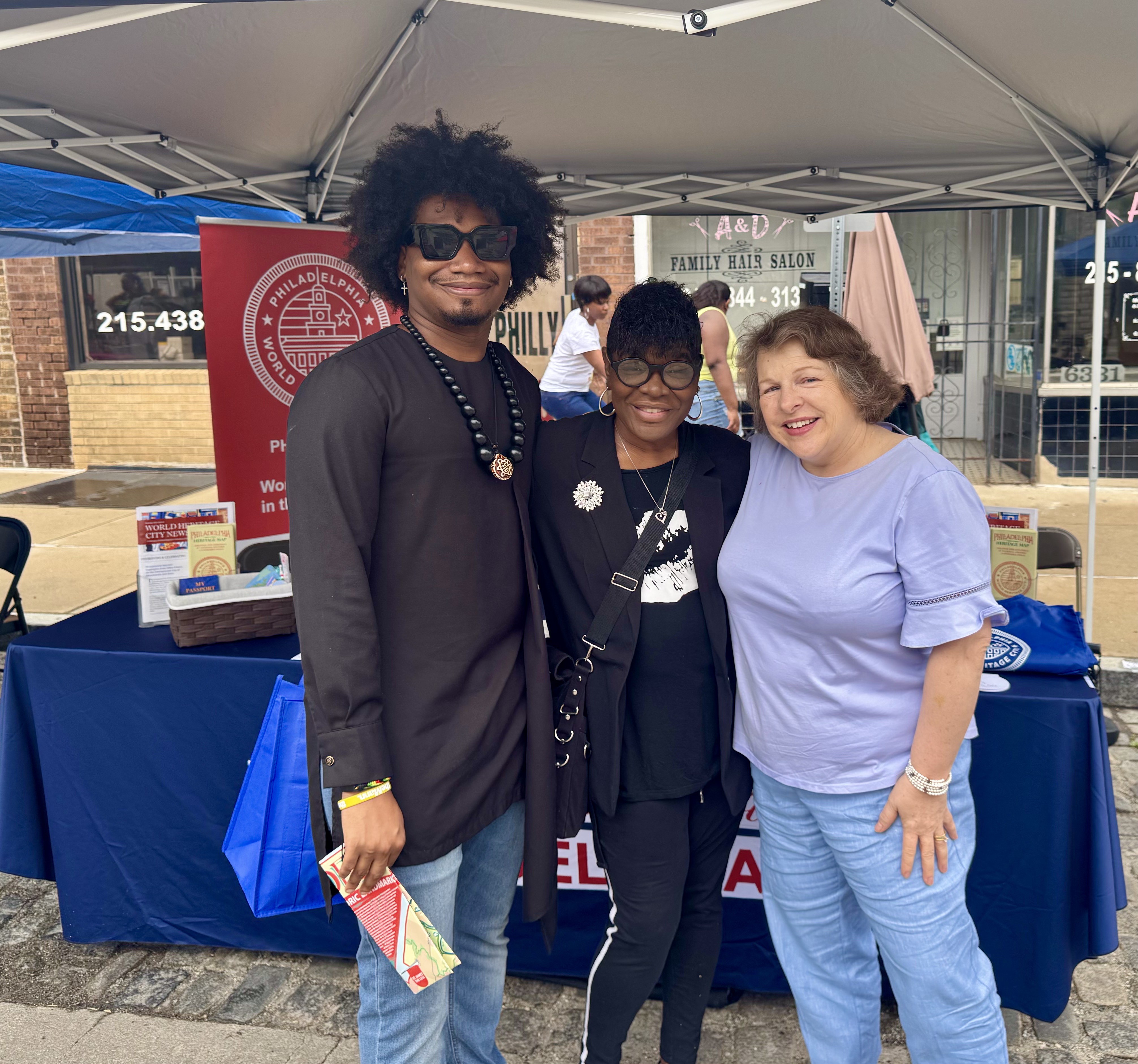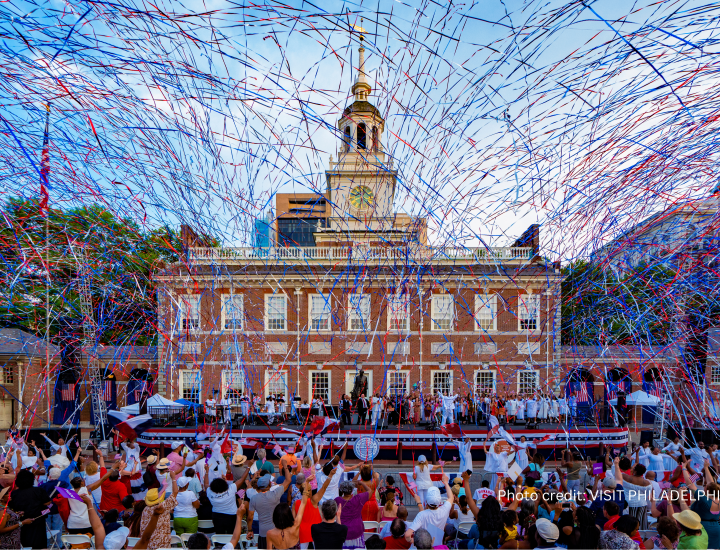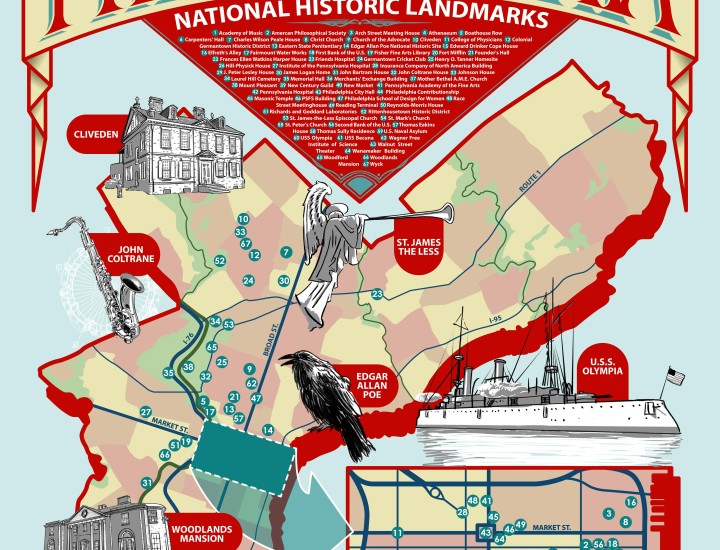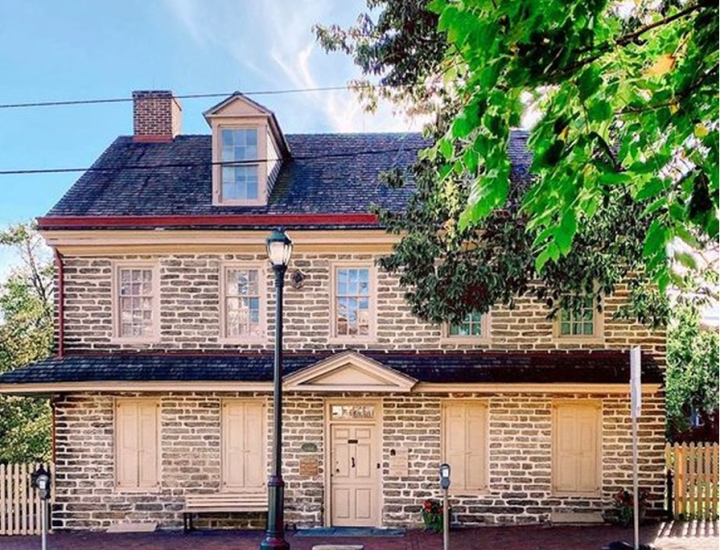‘This is nothing new’: Annual Johnson House Juneteenth Festival celebrates Black unity, perseverance
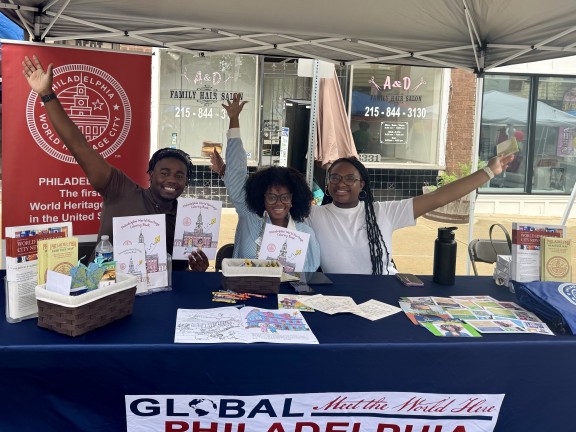
In the early afternoon of June 14, as rain trickled down onto North Philadelphia’s Germantown Avenue, organizers scrambled to cover their sound equipment with tarps while test audio fizzled in and out.
The Historic Johnson House had hoped to officially kick off its 19th Annual Juneteenth Festival at any moment. Despite the inclement weather, the show needed to go on. And it did.
“We may be sugar, but we won’t melt,” event co-emcee Michelle Snow joked during the slightly-delayed opening ceremony.
From 9 a.m. to 7 p.m. Saturday, hundreds of people from across the Delaware Valley made their way to the Johnson House’s Juneteenth celebration — browsing local vendors, sampling multicultural foods, learning about local history and enjoying performances by Black community groups. Throughout the day, attendees, organizers and community leaders alike stressed the importance of fostering unity and recognizing Black history, especially with the festival’s 20th anniversary on the horizon and Philadelphia’s 250th alongside it.
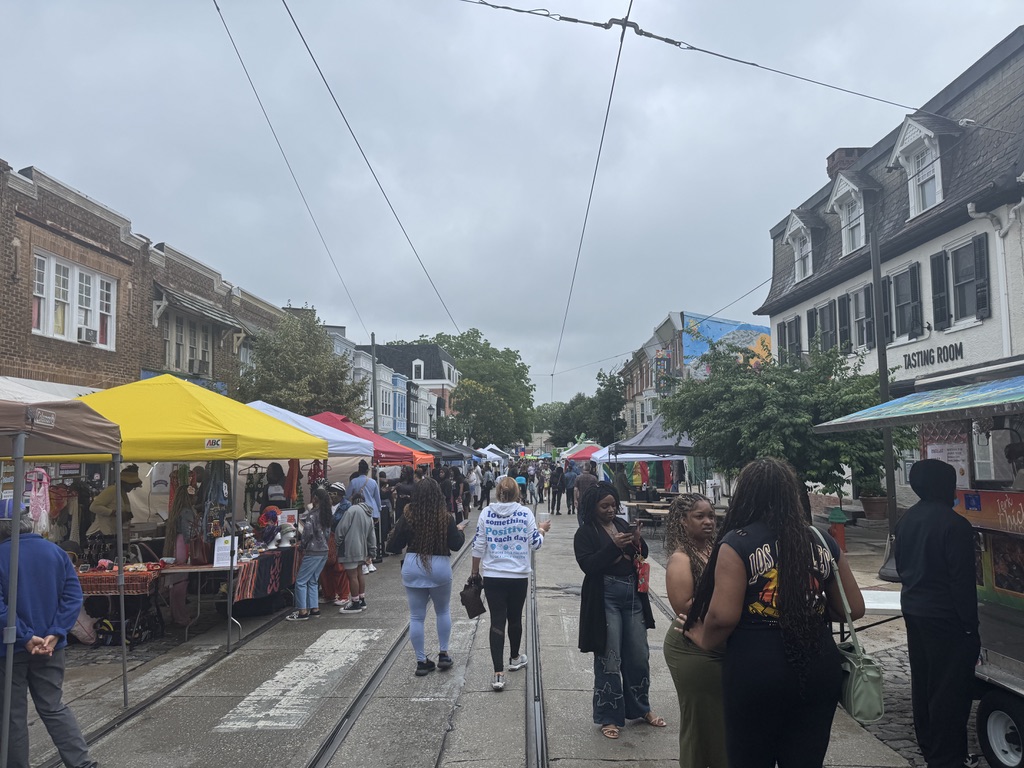
Juneteenth, also called Freedom Day and Emancipation Day, commemorates the moment when the last enslaved individuals in the United States learned of their liberation. On June 19, 1865 — more than two years after President Abraham Lincoln issued the Emancipation Proclamation — Union troops arrived in Galveston, Texas to notify the around 250,000 Black people, who were still being illegally held in slavery, that they were free.
Although Juneteenth didn't receive recognition as a federal holiday until 2021, many Black communities have celebrated it for more than a century. At Saturday’s event, co-emcee Jeff Hart described the commemoration as “nothing new,” noting that the Johnson House — recognized as a National Historic Landmark for its role as a stop on the Underground Railroad — has hosted its own Juneteenth Festival since 2006.
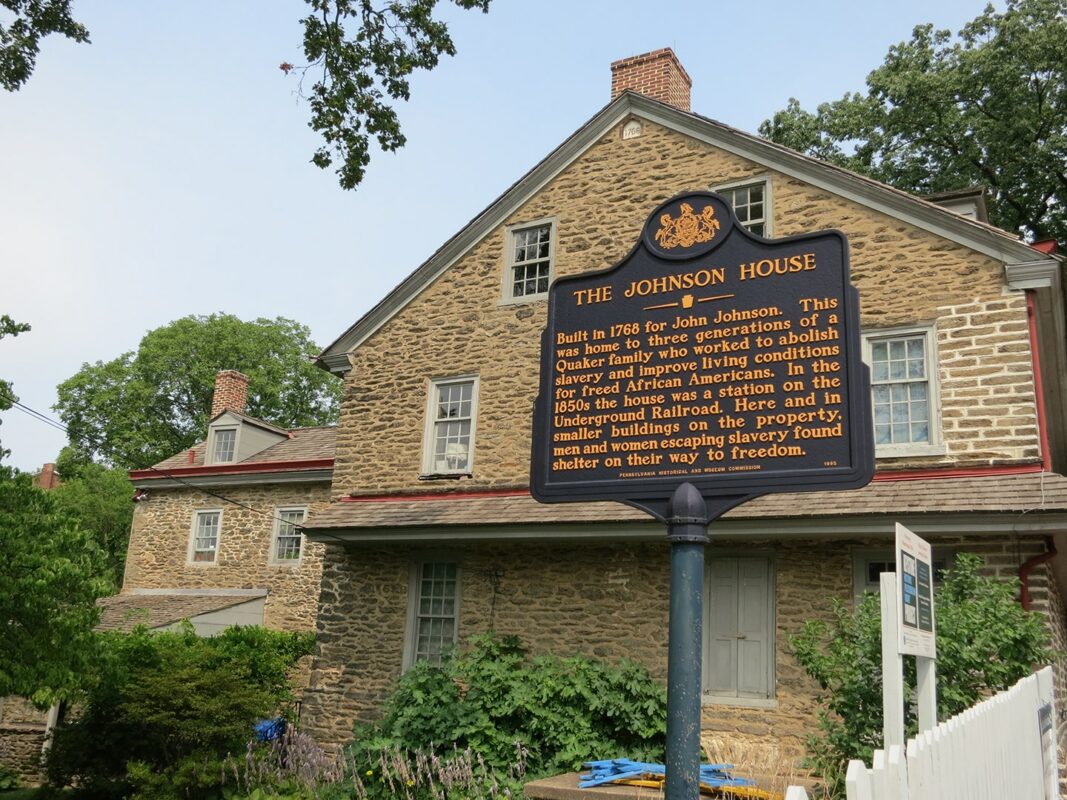
“Not only is this our ‘welcome home,’ it’s a remembrance of our ancestors and all that they have gone through (in) their lives,” Hart said in his opening remarks, as two drummers behind him picked up the beat. “Over 200,000 were still kept in bondage two years after the Emancipation was signed. That is why we are here.”
Each year, the Johnson House transforms the historic, cobblestoned stretch of Germantown Avenue into a vibrant representation of Philadelphia as a whole — with booths from local businesses, lawmakers’ offices and organizations, including the Global Philadelphia Association. The array of colorful canopy tents also reflected the city’s multicultural roots, representing Black American, African, Caribbean and Latin American communities.
At the end of the stretch of road stood the festival’s main stage, where the Johnson House hosted a range of speakers, performers, live music and DJs. Early mainstage events included an African libation ceremony, a choral performance by Voices of Philadelphia, remarks from local elected officials and a reading of the original Juneteenth declaration — General Order No. 3 — by the 3rd Regiment United States Colored Troops Reenactors.
One attendee, Jordan Capri of Philadelphia’s East Oak Lane neighborhood, said the energy of the musical performances was one of her favorite parts of the festival — using just two words to describe them: “chef’s kiss.”
Capri said that she initially wasn’t aware that the celebration was going on, but when she saw the street blocked off, she decided to stop by. Once she realized what the event was, she said she grew to appreciate the Johnson House’s efforts to “spread good energy” and celebrate Black heritage through its festival — especially amid ongoing political tension.
“I really just appreciate the community aspect. It’s a gloomy Saturday in June, and everyone’s still coming and supporting each other,” Capri said. “We’re just here to have a good time … appreciate our culture (and) our people and celebrate independence.”
Along with enjoying the music, Capri said she also browsed the several local businesses in attendance. After buying a handmade scrunchie from a local vendor, she said, she immediately tied her hair in a ponytail to show off her new purchase.
Coinciding with the main performances and businesses tabling, the Johnson House also held several interactive activities — such as an informational “Spotlight Tour” contextualizing the history of the home, performances by the Grounded Theatre Company’s youth conservatory in the nearby Upper Burial Ground and an art exhibit featuring Teishka Smith’s photography from multiple past Germantown Juneteenth Festivals.
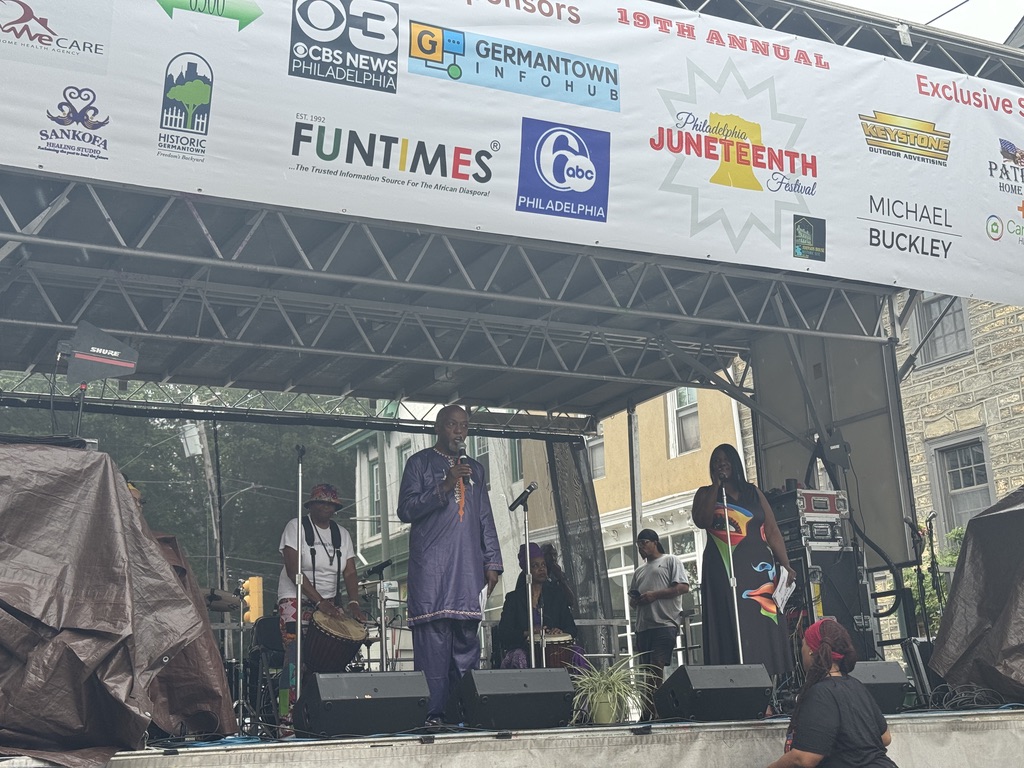
Peppered among vendors were also booths for local elected and appointed officials. Each provided information about the resources available to residents of Germantown and surrounding areas, some of which included details about organizing wills and estates, understanding homeowners’ rights and dealing with taxes on utilities.
April Scott-Street, a leader at the Philadelphia Register of Wills and wife of 3rd District State Senator Sharif Street, said during her remarks that she came to help connect residents with resources to “keep (their) generational wealth” — something historically Black areas like Germantown have often struggled to retain.
Scott-Street also called on attendees to “stick together, support each other and love each other.”
Another local festival goer, Cedric McNear, said he enjoyed the supportive environment of Juneteenth Festival. Although McNear had heard of the Johnson House’s celebration before, he said he decided to stop by after spotting it while leaving a Father’s Day massage down the street.
McNear said he believes it’s important for Philadelphians to be aware of Juneteenth because it helps communities acknowledge history while “being at peace with one another.” He described the holiday as a day that represents “peace and love” persisting in spite of oppression.
“It’s important to know all the sacrifices people of color have went through and remember that there’s nothing wrong with honoring the struggles our forefathers went through,” McNear said. “Just remind ourselves that history is still happening (and to) remember our history as we evolve in our everyday journey.”
Several local elected and appointed officials echoed this idea in their remarks — including Scott-Street; City Councilmember Cindy Bass; Sherry Williams, wife of State Sen. Anthony Hardy Williams; and Wallace Weaver, who spoke on behalf of State Sen. Art Haywood.
The Johnson House has already begun “looking ahead” to the 20th anniversary Juneteenth Festivals and Philadelphia’s — and the United States as a whole’s — semiquincentennial, according to a statement posted to its website. Information about both will be published on GPA’s website.
In their post, organizers also thanked attendees for engaging in “meaningful conversations and shared joy.”
“This is why this is our ‘welcome home’ ceremony,” Snow said. “And we are here to be able to connect with our culture and our history, with love and abundance.”
